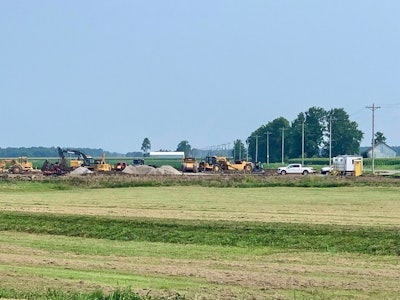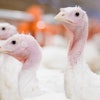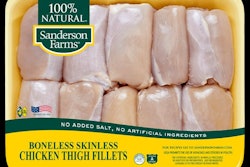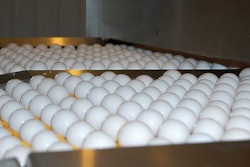
EnviroKure, a liquid biostimulant/biofertilizer company, is developing a 10-acre site in Defiance County, Ohio. The company will invest $20 million over 5 years in the 40,000 sq foot manufacturing facility. Target completion is the first quarter of 2022 with plans to ship product by the end of the quarter.
According to NewsBreak, EnviroKure’s new facility will be located near a Hillandale egg laying operation.
“Initially, the facility will produce five million gallons of product per year. Considering the expansions that are already planned for the manufacturer, they are expecting to be able to produce 25-30 million gallons of product per year,” stated Sonia Nofziger-Dasgupta, Director of Business Development for EnviroKure.
Because the process is aerobic, no methane is produced. “Many companies that use anaerobic processes (methane producing) have required state and federal level subsidies to get going. We have not had to use any of those,” explained Nofziger-Dasgupta. “The plant has been designed to have near zero emissions during normal operations.”
Process flow
“The manure will be transferred to the facility by a contractor, Interactive Ag Management (IAM), and will be immediately processed upon arrival,” explained Nofziger-Dasgupta. “The manure will be brought in as-is and offloaded into mix tanks. In the mix tanks, hot water is added, and specific time and temperature specifications are applied to the slurry to kill any potential pathogen load.”
The slurry is then separated into two value added components. One is a small amount of nutrient rich solid which can be land applied as is for use as a fertilizer or further processed offsite and the other is a biologically active liquid. “The liquid moves into proprietary bioreactors where it undergoes a bioconversion process, which allows the final products to meet USDA organic requirements,” stated Nofziger-Dasgupta.
Because the final product will be applied to food crops, a final pathogen test is done to meet food safety requirements. “COAs will be obtained from a third-party for each batch before they leave the facility and no raw manure will be stored onsite, preventing contamination of the final product,” she described.
“The final product is shipped from our facility in tanker trucks and 275-gallon IBC (intermediate bulk container) totes. Farmers do not need any special equipment for storage or application, and the products can be added to the farmer’s already existing fertilizer regimen.”


















